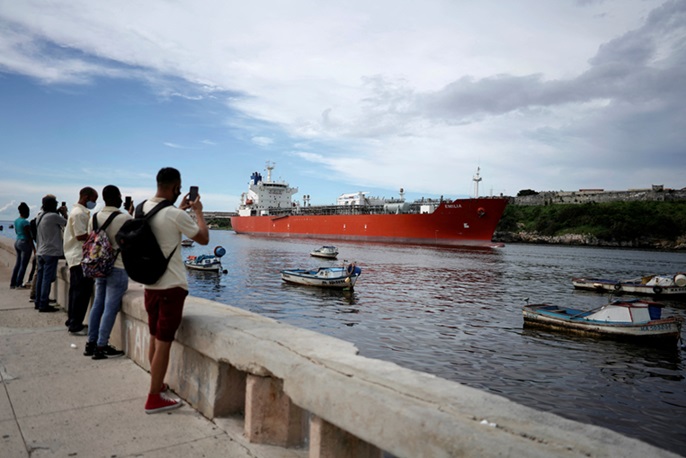In the quaint town of Bejucal, just outside Havana, Germán Martín wrestles with the challenges of running a cafe amidst frequent blackouts. As he tries to keep his business afloat, the situation has become increasingly difficult.
Blackouts are not uncommon in Cuba, but the recent spate has been particularly severe. “Sometimes the power goes out for four hours, or six,” laments Martín, noting the unusual duration for this time of year when cooler weather typically means lower demand and fewer outages. “You learn to adapt, but it’s uncomfortable and bothersome,” he adds, describing the struggle to prepare meals in the half-light.
The Cuban government attributes the power shortages to a lack of fuel for thermoelectric power plants, a shortage that has begun to impact nearly all aspects of daily life on the island. Recently, all sports tournaments, including popular national baseball and soccer leagues, were suspended indefinitely due to a lack of public transportation stemming from the fuel crisis. Gas stations are facing long lines, with many running dry for days on end.
The country’s power grid is also struggling, with deficits at times exceeding one-third of total demand, resulting in hours-long blackouts across much of the island. While the government blames U.S. sanctions and an acute economic crisis for the fuel shortfall, an investigation suggests that internal infrastructure and logistics issues may be equally to blame.
Cuba’s economy requires approximately 125,000 barrels per day of various fuels, including motor gasoline, diesel, and fuel oil for electricity generation. Despite having a domestic oil production of about 40,000 barrels per day and receiving 56,000 barrels per day from Venezuela, the country is still facing a fuel shortage.
Mexico has emerged as another source of oil and fuel for Cuba, supplying an estimated 23,000 barrels per day. Additionally, Europe has provided up to 10,000 barrels per day of diesel, cooking gas, gasoline, and jet fuel in recent months. In total, Cuba is receiving some 129,000 barrels per day, more than enough to cover its stated needs.
Jorge Piñón, an expert on Cuba’s energy infrastructure, believes that the fuel deficit is not due to supply issues but rather internal logistical problems. He points to a fire in 2022 that destroyed a large portion of Cuba’s main oil storage terminal in Matanzas, forcing the country to rely on smaller terminals and floating storage.
Despite the challenges, Cuba’s government has proposed a five-fold increase in heavily subsidized fuel prices to curb demand and raise funds for purchasing larger volumes. However, the price hikes, originally scheduled for February 1, were delayed due to a cyberattack. The government has not provided a new date for when the price rise will take effect.
(Source: Reuters | U.S. News & World Report)









